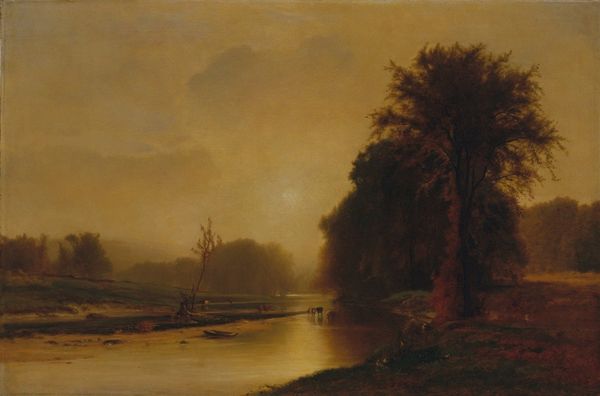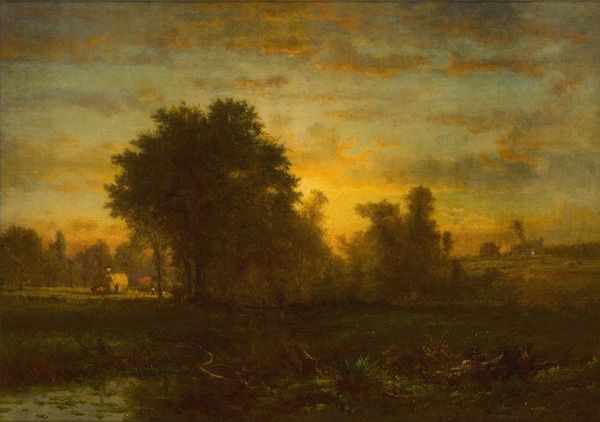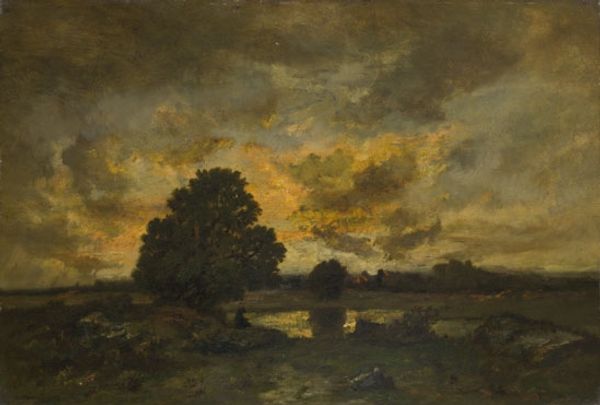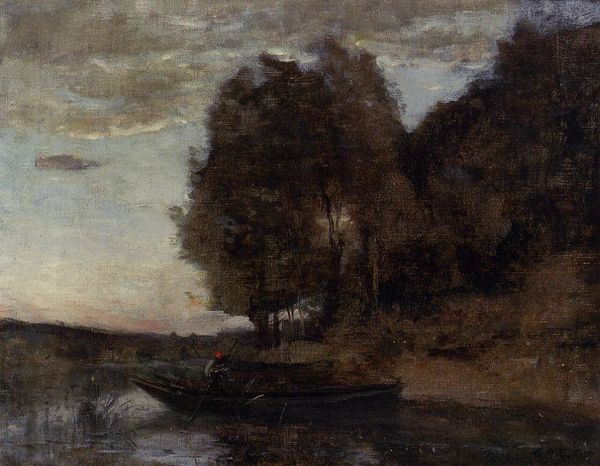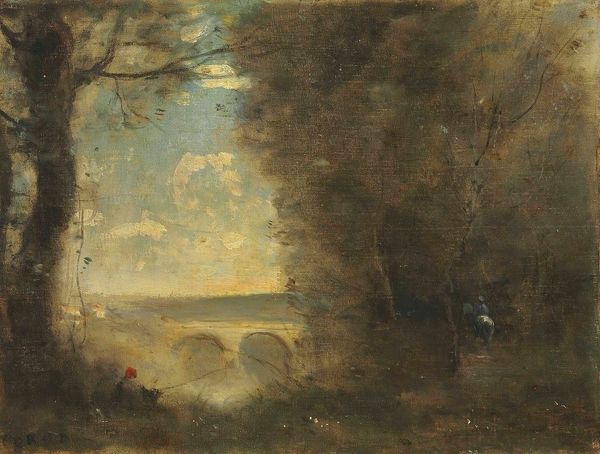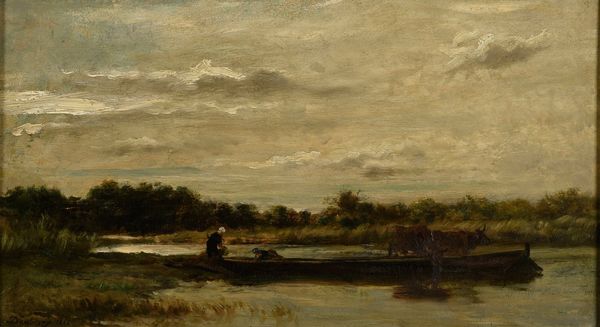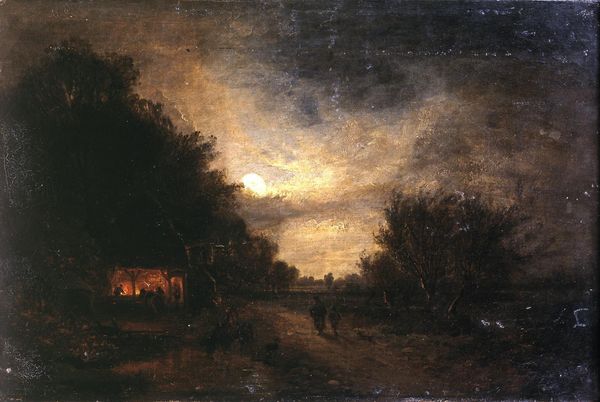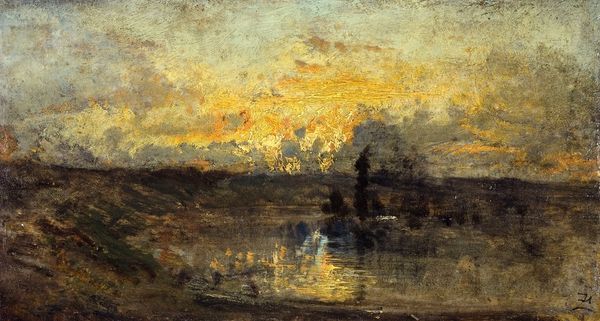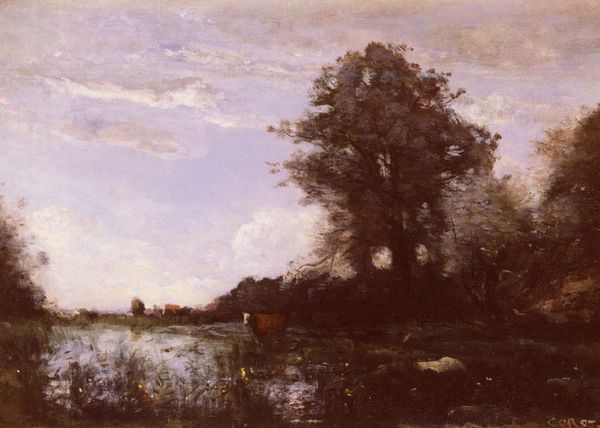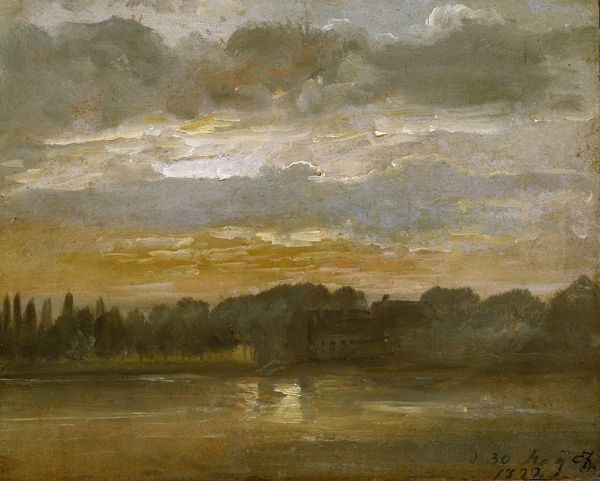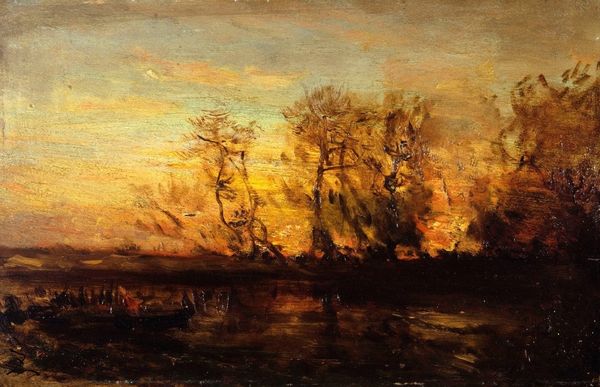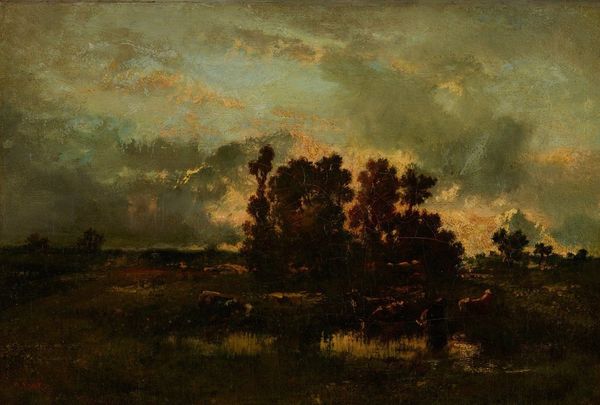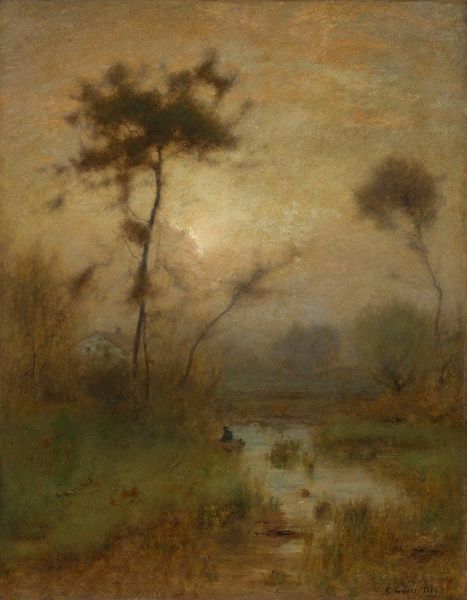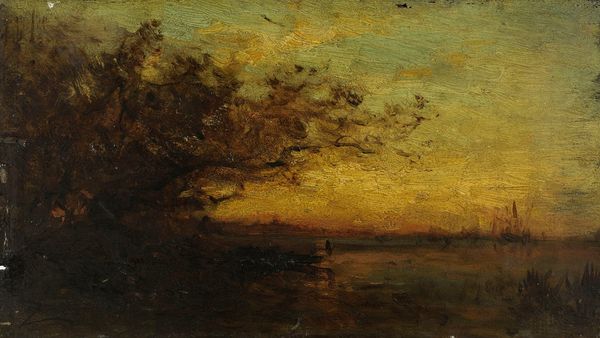
#
abstract expressionism
#
abstract painting
#
landscape
#
charcoal drawing
#
impressionist landscape
#
possibly oil pastel
#
oil painting
#
fluid art
#
acrylic on canvas
#
underpainting
#
watercolor
Copyright: Public Domain: Artvee
Editor: So, here we have Félix Ziem's "Venise, la sortie du Jardin français au crépuscule," painted sometime between 1870 and 1890. The way the light catches the water gives it such a moody atmosphere, almost theatrical. What do you see in this piece? Curator: I see a visual echo of the societal performances of the late 19th century. Venice, in this context, wasn’t just a city; it was a stage for the wealthy. Ziem’s capturing a moment, an exit, likely from a lavish garden party, underlining themes of privilege and fleeting beauty. The heavy impasto almost obscures the figures, does it seem like a metaphor for the erasure of the working class who sustained this lifestyle? Editor: That's a perspective I hadn't considered. I was mainly focusing on the interplay of light and shadow, the Impressionistic brushstrokes. But now that you mention it, there is a distinct lack of working-class representation in the composition, right? Curator: Exactly! The impressionistic style, while seemingly apolitical, becomes charged when viewed through the lens of class and power. What does the "fleeting beauty" signify, and who has access to it? The twilight setting amplifies the feeling of ephemerality; their gilded lives won’t last forever either. Can we consider this, perhaps, a premonition? Editor: I see your point. So, you're suggesting that Ziem's painting, while visually stunning, implicitly critiques the socio-economic disparities of its time? Curator: Precisely! By examining what’s *not* shown, by questioning the idyllic facade, we can begin to decode the complex power dynamics at play. This forces us to grapple with questions about historical representation and narrative control. Editor: Wow, I’ll definitely look at Ziem’s work differently from now on. Thank you! Curator: My pleasure! Art is always speaking; we simply need to attune our ears to its historical and political reverberations.
Comments
No comments
Be the first to comment and join the conversation on the ultimate creative platform.
